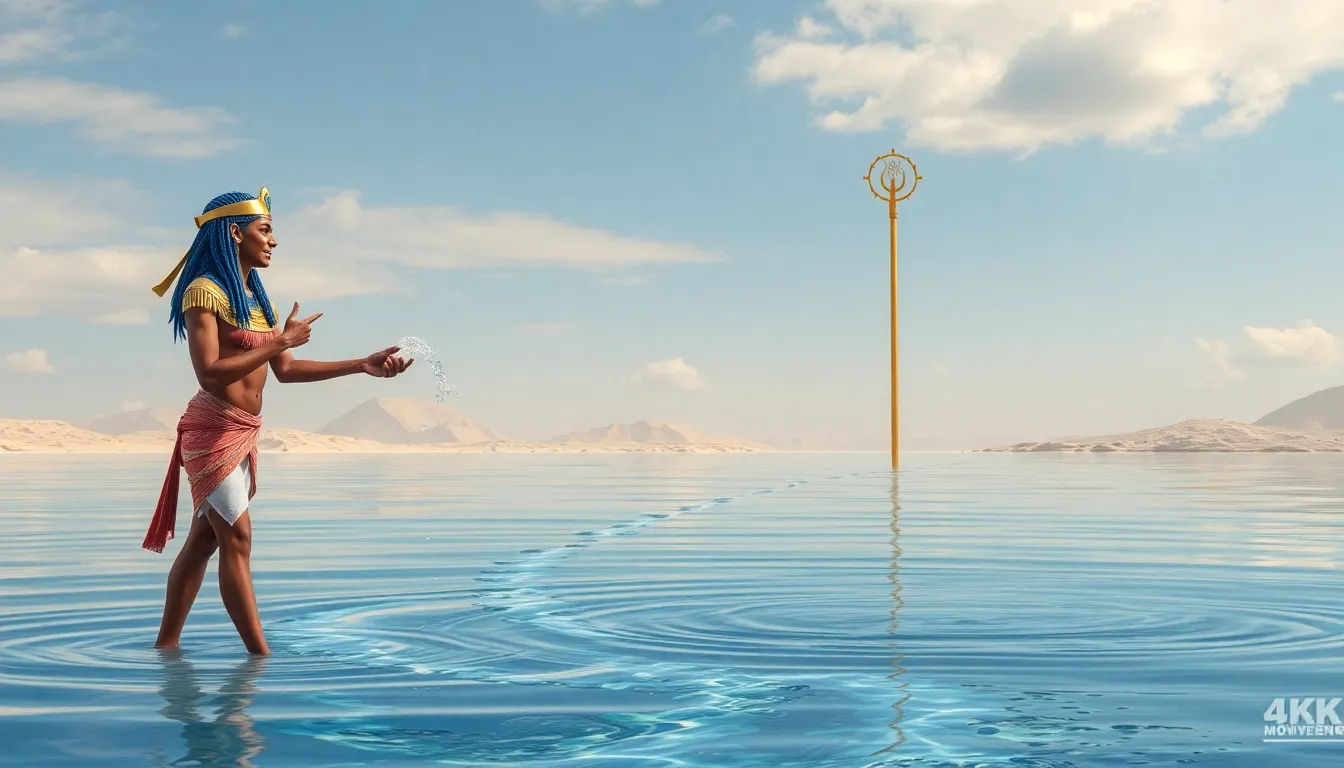The Symbolism of Water in Egyptian Religious Practices
I. Introduction
Water held a paramount significance in ancient Egyptian culture, representing both a source of life and a powerful agent of transformation. The Nile River, as the lifeblood of Egypt, shaped not only the agricultural landscape but also the spiritual beliefs of its people. This article aims to explore the multifaceted symbolism of water in various religious practices, highlighting its importance in mythology, purification rituals, funerary practices, and divine associations.
II. The Element of Water in Egyptian Mythology
In ancient Egyptian mythology, water is deeply woven into the fabric of creation myths and cosmology. The primordial waters, known as Nun, are depicted as the chaotic, formless abyss from which all creation emerged.
- Creation Myths Involving Water: The story of creation begins with Nun, representing the initial state of existence. From these waters, the first land emerged, symbolizing the birth of the universe.
- The Duality of Water: Water is portrayed as both a life-giving force and a destructive element. While it nourishes crops and sustains life, it can also unleash floods and cause devastation.
III. Water as a Symbol of Purification
Purification rituals in ancient Egypt were vital for maintaining spiritual and physical cleanliness. Water played an essential role in these practices.
- Ritual Cleansing Practices: Priests and worshippers would undergo ritual washing before entering temples. This cleansing was believed to remove impurities and prepare individuals for communion with the divine.
- The Significance of the Nile: The Nile River was not only a source of sustenance but also a means of purification. Water from the Nile was used in various rites, signifying renewal and spiritual cleansing.
IV. The Nile: The Lifeblood of Egypt
The Nile River was central to the survival and prosperity of ancient Egypt, profoundly impacting its agricultural practices and religious observances.
- The Nile’s Role in Agriculture: The annual inundation of the Nile brought nutrient-rich silt, allowing the Egyptians to cultivate crops essential for their survival. This natural cycle was seen as a gift from the gods.
- Religious Festivals: Various festivals celebrated the inundation of the Nile, reflecting the people’s gratitude for the river’s life-giving properties. One notable festival was the Wepet-Renpet, marking the start of the agricultural year.
V. Water in Funerary Practices and the Afterlife
Water’s significance extended beyond life into the realm of death and the afterlife, playing a crucial role in funerary customs.
- Use of Water in Mummification: Water was used in the mummification process, where the body was washed and treated to ensure a safe passage into the afterlife.
- Symbolism in the Journey to the Afterlife: The River of the Dead, known as the Duat, is often depicted as a waterway that souls must traverse to reach their final destination, symbolizing the transition from life to the afterlife.
VI. Divine Associations with Water
Numerous deities in ancient Egyptian religion were associated with water, highlighting its importance in spiritual beliefs.
- Water Deities: Hapi, the god of the Nile, was revered for his role in the annual flooding and abundance of the land. He was often depicted as a plump man with a beard, symbolizing fertility.
- Sacred Bodies of Water: Lakes and springs were considered sacred, often associated with specific deities. For instance, Lake Meret was linked to the goddess Hathor, symbolizing fertility and motherhood.
VII. Rituals and Offerings Involving Water
Water was integral to various rituals and offerings, signifying the connection between the divine and the mortal realms.
- Water Libations: During ceremonies, priests would pour water as an offering to the gods, symbolizing nourishment and respect. This act was seen as a way to appease the deities.
- Symbolic Gestures: In daily religious practices, water was used in gestures that expressed devotion, such as washing offerings before presenting them to the gods.
VIII. Conclusion
The multifaceted symbolism of water in ancient Egyptian culture underscores its critical role in shaping religious practices and beliefs. From its representation in creation myths to its use in purification and funerary rites, water served as a vital element connecting the spiritual and physical worlds. Its enduring legacy continues to influence contemporary understandings of ancient Egyptian spirituality, reminding us of the profound relationship between water, life, and the divine.




